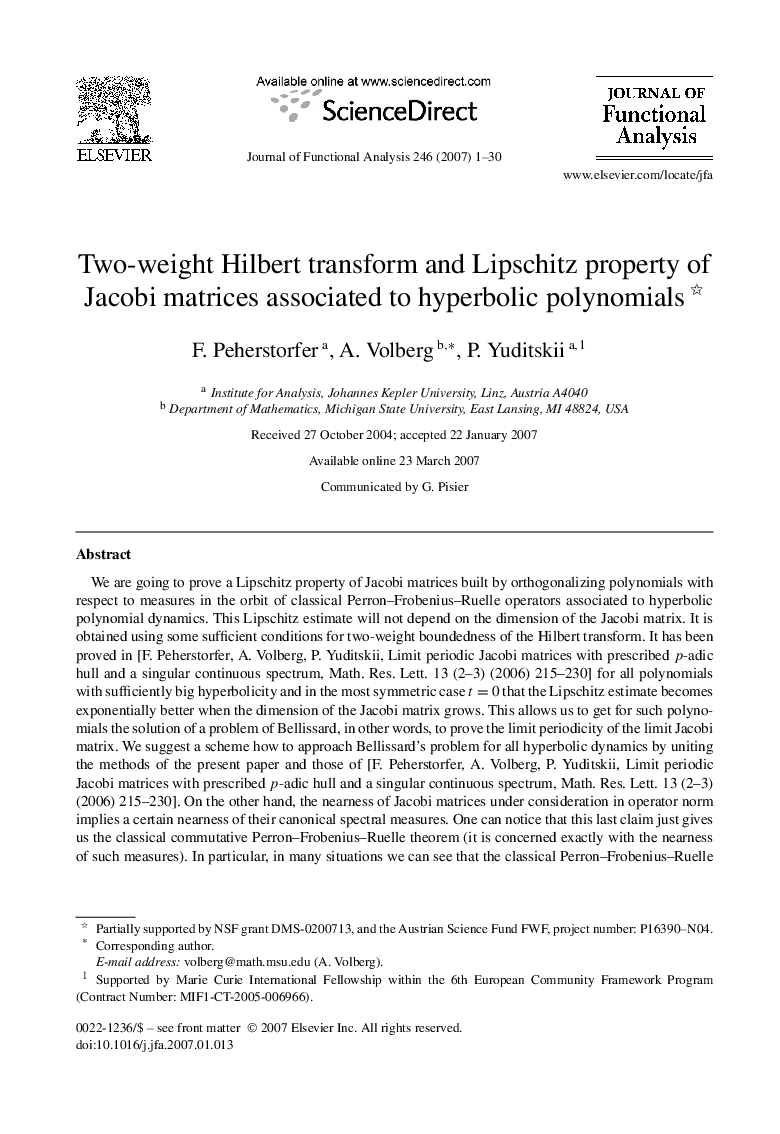| Article ID | Journal | Published Year | Pages | File Type |
|---|---|---|---|---|
| 4592382 | Journal of Functional Analysis | 2007 | 30 Pages |
We are going to prove a Lipschitz property of Jacobi matrices built by orthogonalizing polynomials with respect to measures in the orbit of classical Perron–Frobenius–Ruelle operators associated to hyperbolic polynomial dynamics. This Lipschitz estimate will not depend on the dimension of the Jacobi matrix. It is obtained using some sufficient conditions for two-weight boundedness of the Hilbert transform. It has been proved in [F. Peherstorfer, A. Volberg, P. Yuditskii, Limit periodic Jacobi matrices with prescribed p-adic hull and a singular continuous spectrum, Math. Res. Lett. 13 (2–3) (2006) 215–230] for all polynomials with sufficiently big hyperbolicity and in the most symmetric case t=0 that the Lipschitz estimate becomes exponentially better when the dimension of the Jacobi matrix grows. This allows us to get for such polynomials the solution of a problem of Bellissard, in other words, to prove the limit periodicity of the limit Jacobi matrix. We suggest a scheme how to approach Bellissard's problem for all hyperbolic dynamics by uniting the methods of the present paper and those of [F. Peherstorfer, A. Volberg, P. Yuditskii, Limit periodic Jacobi matrices with prescribed p-adic hull and a singular continuous spectrum, Math. Res. Lett. 13 (2–3) (2006) 215–230]. On the other hand, the nearness of Jacobi matrices under consideration in operator norm implies a certain nearness of their canonical spectral measures. One can notice that this last claim just gives us the classical commutative Perron–Frobenius–Ruelle theorem (it is concerned exactly with the nearness of such measures). In particular, in many situations we can see that the classical Perron–Frobenius–Ruelle theorem is a corollary of a certain non-commutative observation concerning the quantitative nearness of pertinent Jacobi matrices in operator norm.
